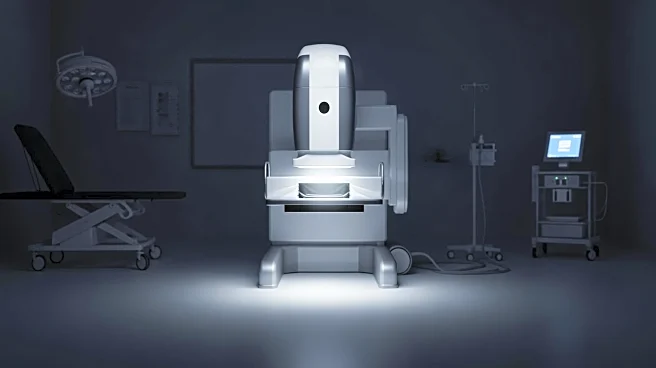What's Happening?
Puka Nacua, a wide receiver for the Los Angeles Rams, is set to undergo scans for a rib injury sustained during the team's recent win against the New Orleans Saints. The Rams improved their record to 6-2 with this victory. Nacua was removed from the game
in the third quarter after initially being diagnosed with a chest injury. Despite securing 95 yards and a touchdown earlier in the game, he did not return to play. Rams head coach Sean McVay expressed optimism about Nacua's condition, suggesting that the player could have re-entered the game but was held back as a precaution. McVay is hopeful that the scans will not reveal any significant damage, which would allow Nacua to continue playing without interruption.
Why It's Important?
The potential impact of Nacua's injury is significant for the Rams, who have been performing well in the current season. Nacua is a key offensive player, ranking third in the NFL with 711 total receiving yards despite missing nearly two games due to a previous ankle injury. His ability to remain healthy is crucial for the Rams as they aim to compete in the highly competitive NFC. If the scans reveal a more serious injury, Nacua's absence could hinder the team's offensive capabilities and affect their chances of maintaining their winning streak.
What's Next?
The Rams are awaiting the results of Nacua's scans to determine the extent of his rib injury. Depending on the outcome, the team may need to adjust their strategy and lineup for upcoming games. If Nacua is sidelined, the Rams will have to rely on other players to fill the gap in their offensive lineup. The team's management and coaching staff will be closely monitoring Nacua's recovery and making decisions based on his health status.
Beyond the Headlines
Nacua's situation highlights the physical demands and risks associated with professional football. Injuries are a common occurrence, and teams must balance player safety with competitive performance. The Rams' cautious approach in handling Nacua's injury reflects a broader trend in sports management, where player health is increasingly prioritized to ensure long-term career sustainability.















